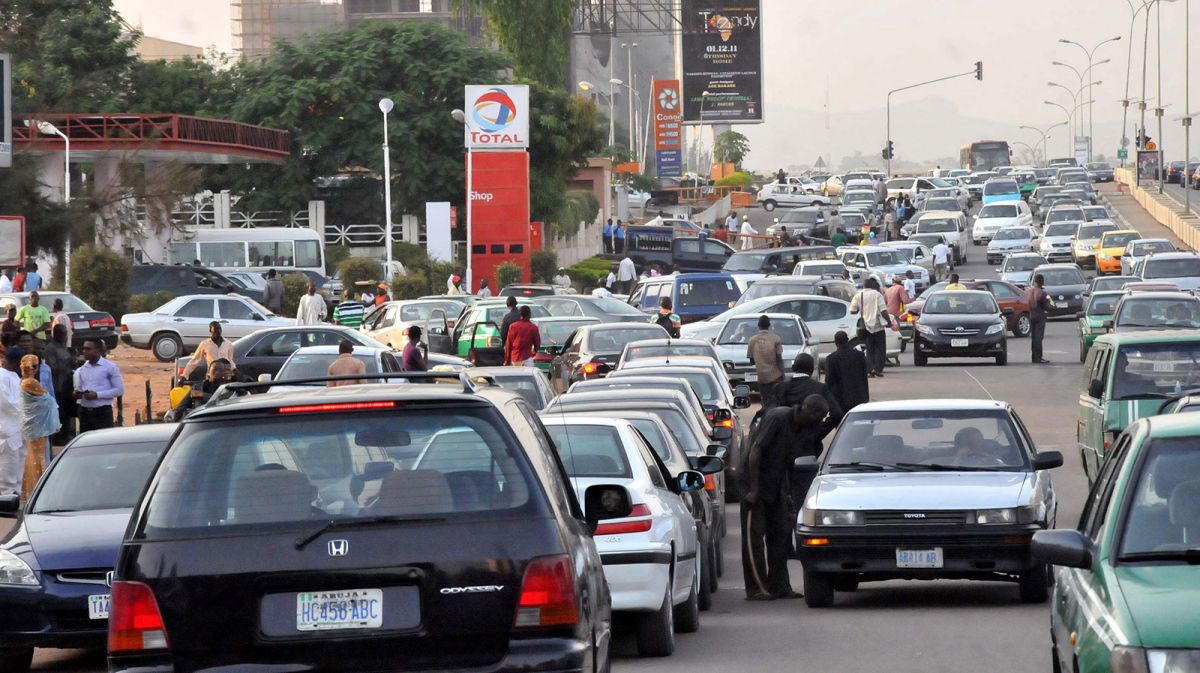LAGOS, Nigeria — The Independent Petroleum Marketers Association of Nigeria, IPMAN, has called on President Bola Tinubu to declare an emergency on the nation’s refineries as fuel prices reach historic highs.
The association’s Rivers State chairman, Dr. Joseph Obele, called amid public outcry over the skyrocketing price of Premium Motor Spirit, PMS, also known as petrol, which reached an unprecedented N612 per litre on Tuesday, July 18, 2023.
In a statement, Obele highlighted the increase in the ex-depot price — the price at which marketers buy fuel from depots — from N487.7 per litre to N567.7 per litre.
“It is true, that on Tuesday 18th July, we saw a new buying rate on the NNPC Portal,” Obele stated. “The previous buying rate was N487.7 per litre. The new buying rate as we advance is N567.7 per litre.”
The chairman further detailed how the new selling rates range from N600, N610, N620, and above.
This sharp price increase, he warned, would not only bring hardship to Nigerian citizens but also necessitate marketers to secure additional trading capital to remain in business.
Expressing IPMAN’s view on solving the escalating crisis, Obele stressed the urgent need to address the country’s refinery woes. “Our solution is fixing Nigeria’s refineries. Mr. President should declare a state of emergency on Nigeria refineries,” he said.
This appeal for presidential intervention reflects the growing concern within Nigeria’s petroleum sector as fuel prices soar, impacting not only individual consumers but also businesses.
The state of the nation’s refineries has long been a contentious issue, and the current crisis underscores the urgent need for extensive reforms and significant investment.
Fuel Subsidy Aftermath: Auto Mechanics Struggle with Surge of Uncollected Cars
The auto mechanic shops in Umuahia, the capital city of Abia State, are dealing with an unusual problem — a glut of cars left uncollected by their owners.
This unexpected logjam has followed the removal of fuel subsidies by the Nigerian Federal Government, which has driven fuel prices up to N530 per liter, causing financial stress for car owners and decreased patronage for mechanics.
In an interview with journalists on Friday, July 7, 2023, mechanics Cletus Iwundu and Kelechi Nonso reported a severe drop in their business earnings since the subsidy removal on June 1, 2023.
Many of their customers, they claimed, have left their cars in the workshops, even after all repairs had been completed.
“Our workshops are becoming car parks,” lamented Iwundu. “The customers complain about the cost of maintaining their cars and just leave them here.”
To add to the complexity of the situation, the mechanics disclosed that some customers have requested them to find buyers for their vehicles, unable to bear the burden of the new fuel prices.
“Some of my customers told me that they will collect their cars after they receive their salaries,” Nonso added.
A tour around Ohiya auto mechanic village — the largest auto market in Umuahia, situated along the Enugu-Port Harcourt Express Way — and several other local workshops, confirmed this developing trend.
The removal of fuel subsidies has led to broader economic hardship, with effects rippling out into sectors as diverse as auto repair.
As Nigeria grapples with the economic aftershocks of removing its long-standing fuel subsidy, it’s becoming clear that the consequences reach far beyond the gas pump.
Whether this move will prove beneficial in the long run, as some economists argue, is a debate that provides little solace to the struggling mechanics of Umuahia.







